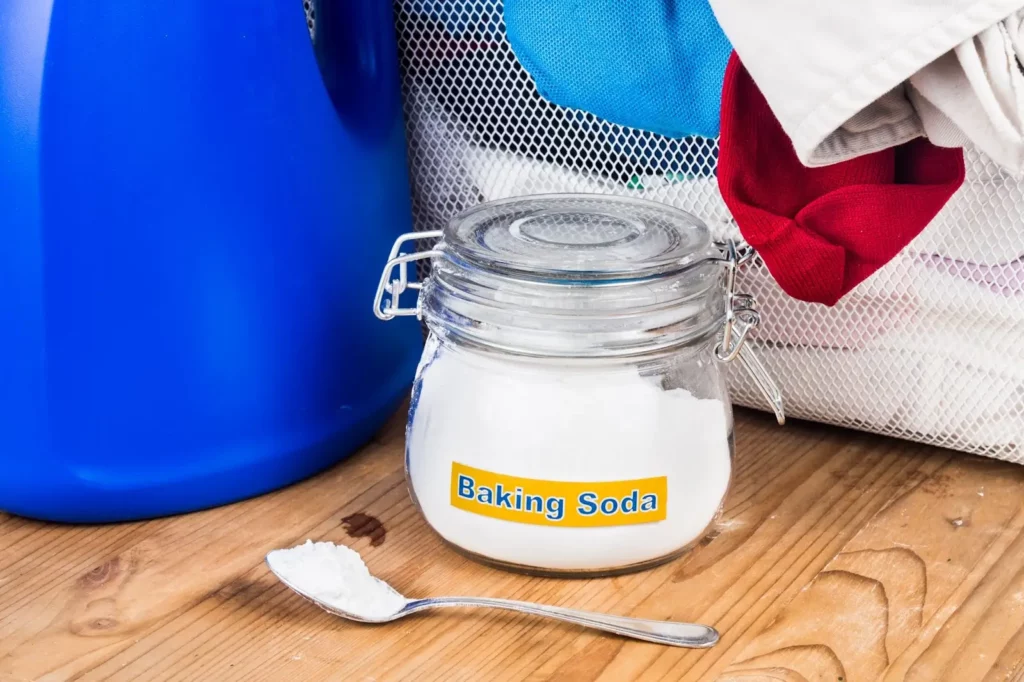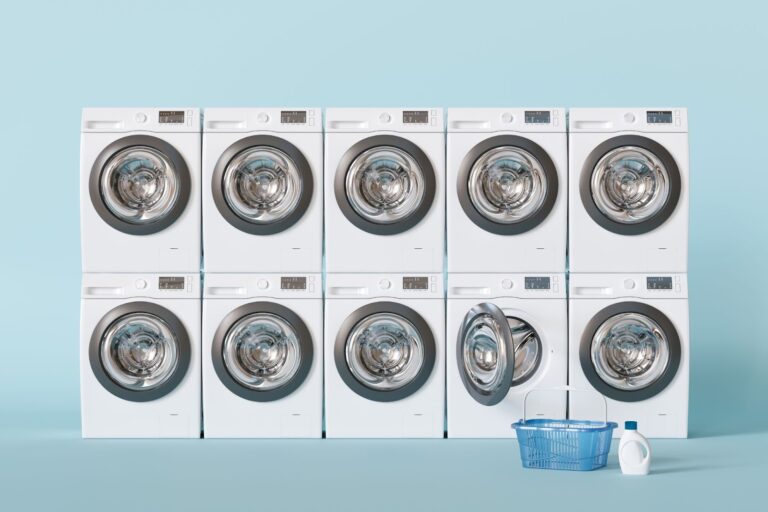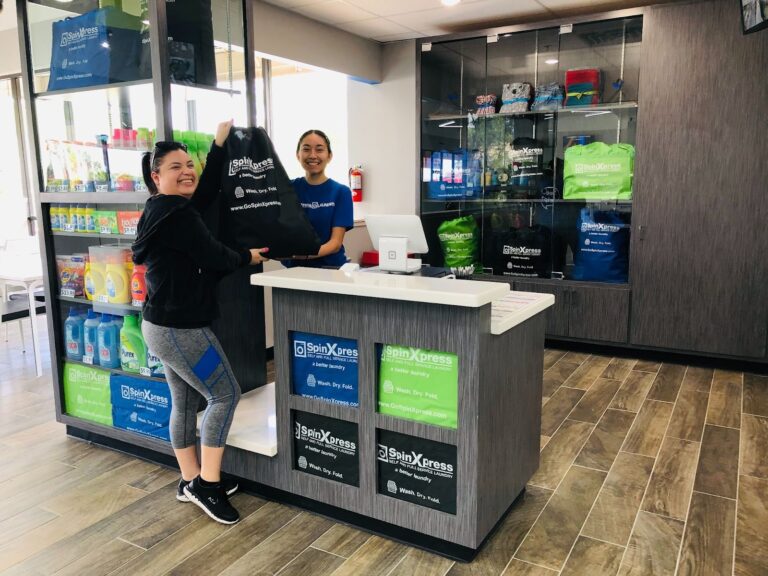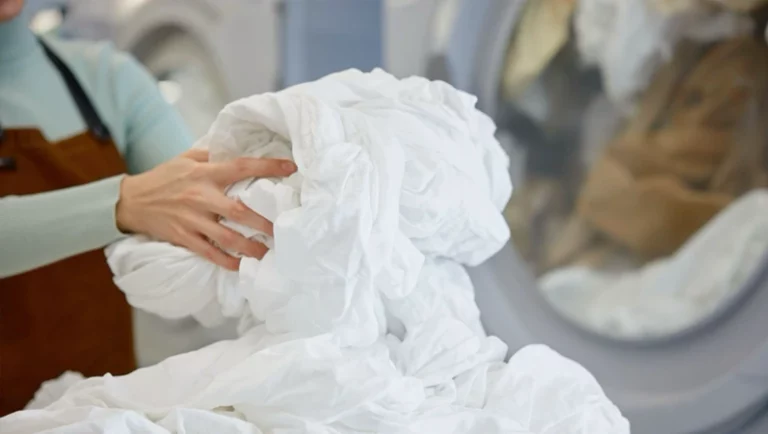Baking soda, a versatile household staple, has gained popularity as a laundry booster. Its ability to tackle odors, soften fabrics, and enhance cleaning power has made it a favorite among eco-conscious and budget-savvy consumers. But can you mix baking soda and laundry detergent without compromising their effectiveness? Let’s get into the world of laundry science to find out.
What Are the Benefits of Baking Soda in Laundry?
Baking soda offers a multitude of advantages when added to your laundry routine.
1. Odor Neutralization
Use baking soda in the washing machine for odor. Baking soda is a powerful odor absorber. It effectively neutralizes unpleasant smells, leaving your clothes fresh and clean.
2. Stain Removal
While not a miracle stain remover, baking soda can help break down certain stains, especially those caused by sweat or odors.
3. Softening Clothes
Baking soda acts as a natural fabric softener, leaving your clothes feeling soft and fluffy without the need for harsh chemicals.
4. Boosting Detergent Performance
When combined with laundry detergent, baking soda can enhance its cleaning power, helping to remove dirt and grime more effectively.
5. Brightening Whites and Colors
Baking soda can help restore the brightness of whites and enhance the vibrancy of colors over time.
6. Reducing Buildup and Residue
Regular use of baking soda can help prevent detergent buildup and residue in your washing machine.
7. Environmental Benefits
Baking soda is a natural and biodegradable product, making it a more eco-friendly laundry option.
8. Deodorizing Washing Machines
Adding baking soda to an empty wash cycle can help eliminate unpleasant odors from your washing machine.
9. Cost-Effectiveness
Baking soda is relatively inexpensive, making it a budget-friendly laundry booster.
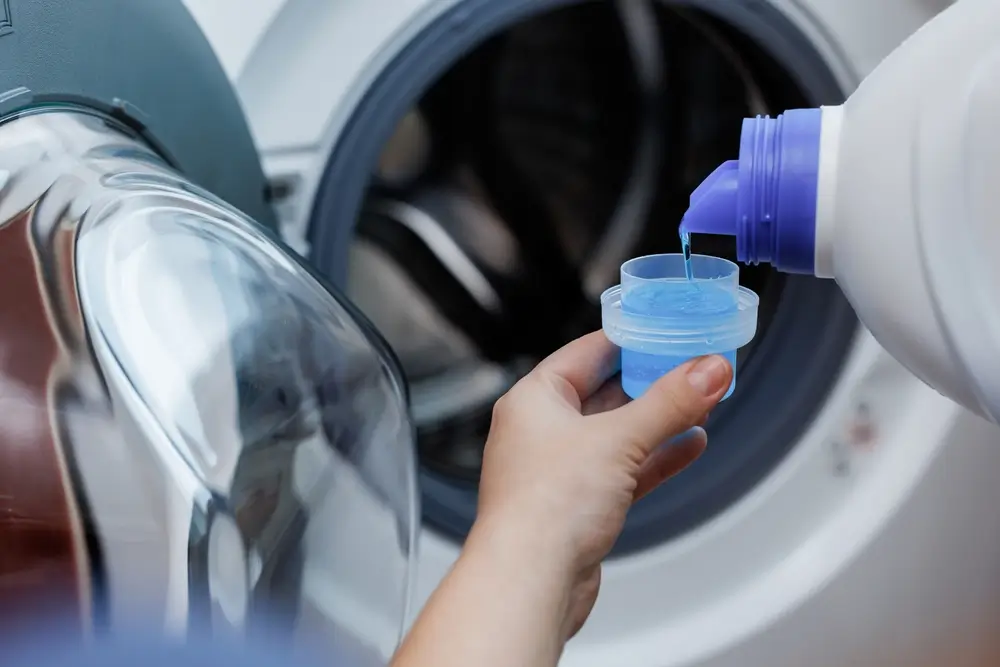
How Does Laundry Detergent Work?
Laundry detergent is a complex mixture of surfactants, enzymes, and other chemicals designed to break down dirt, oil, and stains. It works by emulsifying and suspending dirt particles in the water, allowing them to be rinsed away.
Is Using Baking Soda and Vinegar Together a Good Idea?
While both baking soda and vinegar have their merits in laundry, using them together is generally not recommended. They neutralize each other’s properties, diminishing their individual benefits.
How Should You Mix Baking Soda with Laundry Detergent?
To use baking soda in your laundry, simply add ½ to 1 cup to the washing machine drum before adding your clothes and detergent. You can also add it to the detergent compartment if your machine allows.
Is It Safe to Mix Baking Soda with All Types of Detergents?
Generally, yes, it is safe to mix baking soda with most laundry detergents. Baking soda is a mild alkaline substance, and most detergents are designed to handle a range of pH levels.
However, there are a few things to consider:
- Detergent Formulation: Some detergents have specific formulations that might react differently with baking soda. It’s always a good idea to check the detergent label for any specific instructions or warnings.
- Fabric Sensitivity: While baking soda is generally safe for most fabrics, it can be harsh on certain delicate materials like silk, wool, and spandex.
- Excessive Use: Using too much baking soda can lead to residue buildup on your clothes and might affect the performance of some detergents.
To be safe, it’s recommended to start with a small amount of baking soda and gradually increase it as needed. If you notice any issues with your laundry, such as residue, reduced cleaning effectiveness, or damage to fabrics, it’s best to discontinue using baking soda.
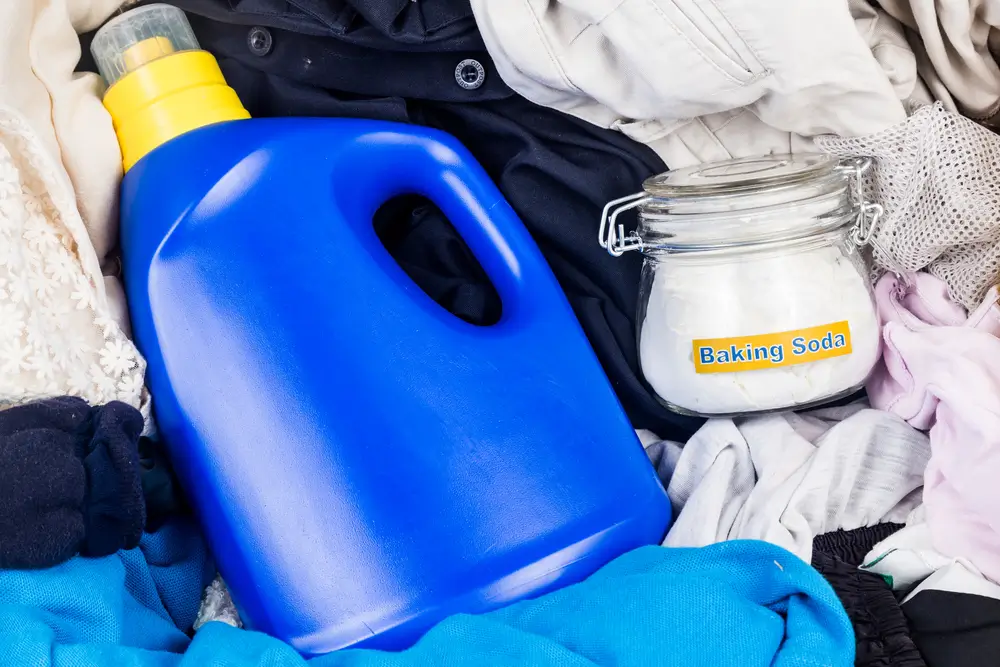
Can Baking Soda Replace Laundry Detergent?
Replacing baking soda and vinegar for laundry detergent might not be a good idea. While baking soda for clothes washing offers various benefits, it cannot completely replace laundry detergent. Detergent contains essential cleaning agents that baking soda lacks. It’s best to use baking soda and laundry detergent together or use baking soda as a complement to your regular detergent.
How Does Washing Clothes With Vinegar or Baking Soda Compare to Detergent?
While vinegar and baking soda offer certain benefits in laundry care, they cannot replace the comprehensive cleaning power of detergent. Vinegar excels at softening fabrics, eliminating odors, brightening whites, and dissolving residue. Baking soda effectively neutralizes odors, assists in stain removal, softens fabrics, and can enhance detergent performance.
On the other hand, detergents are specifically formulated to break down oils, grease, and a wide range of stains, emulsify dirt, and prevent its redeposition. For optimal cleaning, especially with heavily soiled items, detergent is essential. Vinegar and baking soda can be used as complementary additions to target specific laundry concerns, but they should not be relied upon as primary cleaning agents.
How Does Baking Soda Affect Different Fabric Types?
Baking soda is generally safe for most fabrics. However, it’s essential to consider the specific characteristics of different materials.
1. Cotton
Baking soda is a great choice for cotton fabrics, as it helps to soften and brighten them.
2. Linen
Similar to cotton, baking soda can be used on linen to enhance its softness and freshness.
3. Polyester and Synthetics
Baking soda can be used on these fabrics, but it’s essential to avoid excessive amounts, as it might affect their texture.
4. Wool
Wool is a delicate fabric, and baking soda can be harsh on it. It’s best to avoid using baking soda on wool items.
5. Silk
Like wool, silk is a delicate fabric that can be damaged by baking soda. It’s best to use a gentle detergent specifically designed for silk.
6. Rayon and Viscose
These fabrics are sensitive to pH levels, and baking soda can alter their color and texture. It’s advisable to avoid using baking soda on rayon and viscose items.
7. Spandex and Lycra
Baking soda can break down the elastic fibers in spandex and Lycra, leading to stretching and loss of elasticity. It’s best to avoid using baking soda on these fabrics.
8. Denim
Baking soda can be used on denim to help remove stains and odors. However, excessive use might affect the color and texture of the fabric.
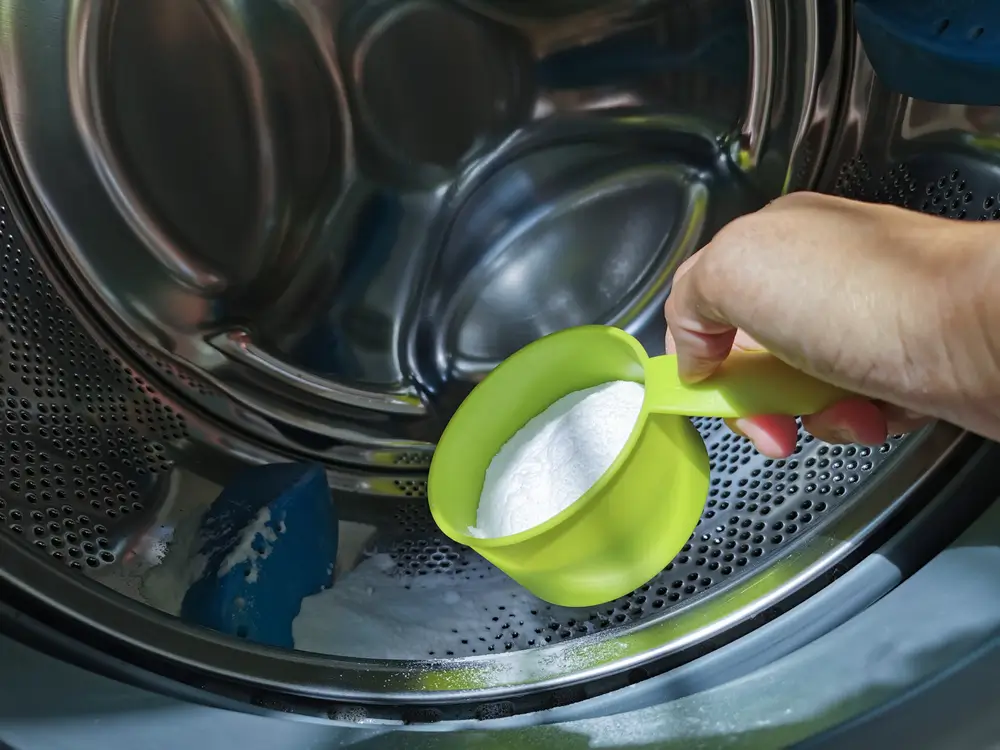
Does Adding Baking Soda To Laundry Help with Hard Water Issues?
Yes, baking soda can help soften hard water, reducing its impact on laundry performance.
Hard water contains high levels of minerals like calcium and magnesium.
These minerals can lead to problems like:
- Soap scum buildup
- Mineral deposits on appliances
- Dull-looking laundry
- Dry skin and hair
Baking soda helps by:
- Softening the water: It can neutralize some of the minerals in hard water, making it less harsh on your skin, hair, and clothes.
- Boosting detergent effectiveness: Baking soda can enhance the cleaning power of detergents, helping to combat the effects of hard water.
Are There Any Downsides to Putting Baking Soda in Laundry?
While baking soda offers numerous benefits, it’s important to be aware of potential downsides. Excessive use can lead to fabric stiffness, color fading, and damage to certain fabrics. It’s also crucial to rinse clothes thoroughly to remove any baking soda residue.
Trusting The Laundry Experts
Baking soda can be a valuable addition to your laundry routine when used correctly. By understanding its benefits, limitations, and proper usage, you can enjoy cleaner, fresher, and softer clothes. However, if you prefer to leave the laundry to the experts, consider using a professional laundry service in Houston, TX like SpinXpress. Their expertise ensures that your clothes are cleaned and cared for properly, saving you time and effort. Visit SpinXpress to learn more about their services or schedule a pickup today.

